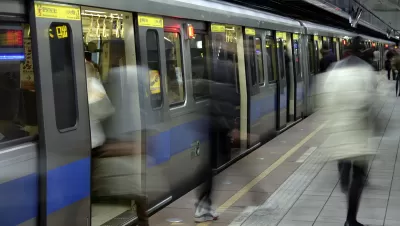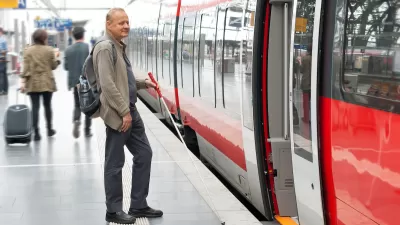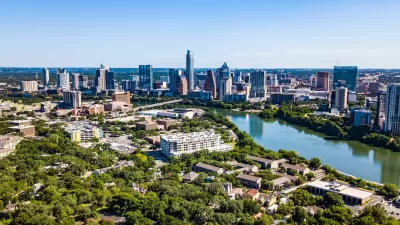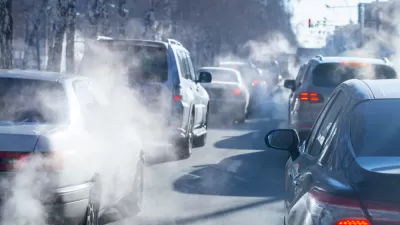A study examines the impact of a worldwide shift away from automobile infrastructure and finds a staggering amount of potential benefits by the year 2050.

"More than $100 trillion in public and private spending could be saved between now and 2050 if the world expands public transportation, walking and cycling in cities, according to a new report released by the University of California, Davis, and the Institute for Transportation and Development Policy."
Announced by a UC Davis press release, A Global High Shift Scenario "is the first study to examine how major changes in transportation investments worldwide would affect urban passenger transport emissions as well as the mobility of different income groups."
The report relies on a "High Shift" scenario to model the potential environmental benefits of moving away from auto-oriented planning. The High Shift would significantly increase rail and clean buses, walking and biking, reduce construction of roads and parking, and adopt more protective emission control standards.
FULL STORY: Global shift to mass transit could save more than $100 trillion and 1,700 megatons of CO2

Maui's Vacation Rental Debate Turns Ugly
Verbal attacks, misinformation campaigns and fistfights plague a high-stakes debate to convert thousands of vacation rentals into long-term housing.

Planetizen Federal Action Tracker
A weekly monitor of how Trump’s orders and actions are impacting planners and planning in America.

Chicago’s Ghost Rails
Just beneath the surface of the modern city lie the remnants of its expansive early 20th-century streetcar system.

Bend, Oregon Zoning Reforms Prioritize Small-Scale Housing
The city altered its zoning code to allow multi-family housing and eliminated parking mandates citywide.

Amtrak Cutting Jobs, Funding to High-Speed Rail
The agency plans to cut 10 percent of its workforce and has confirmed it will not fund new high-speed rail projects.

LA Denies Basic Services to Unhoused Residents
The city has repeatedly failed to respond to requests for trash pickup at encampment sites, and eliminated a program that provided mobile showers and toilets.
Urban Design for Planners 1: Software Tools
This six-course series explores essential urban design concepts using open source software and equips planners with the tools they need to participate fully in the urban design process.
Planning for Universal Design
Learn the tools for implementing Universal Design in planning regulations.
planning NEXT
Appalachian Highlands Housing Partners
Mpact (founded as Rail~Volution)
City of Camden Redevelopment Agency
City of Astoria
City of Portland
City of Laramie





























